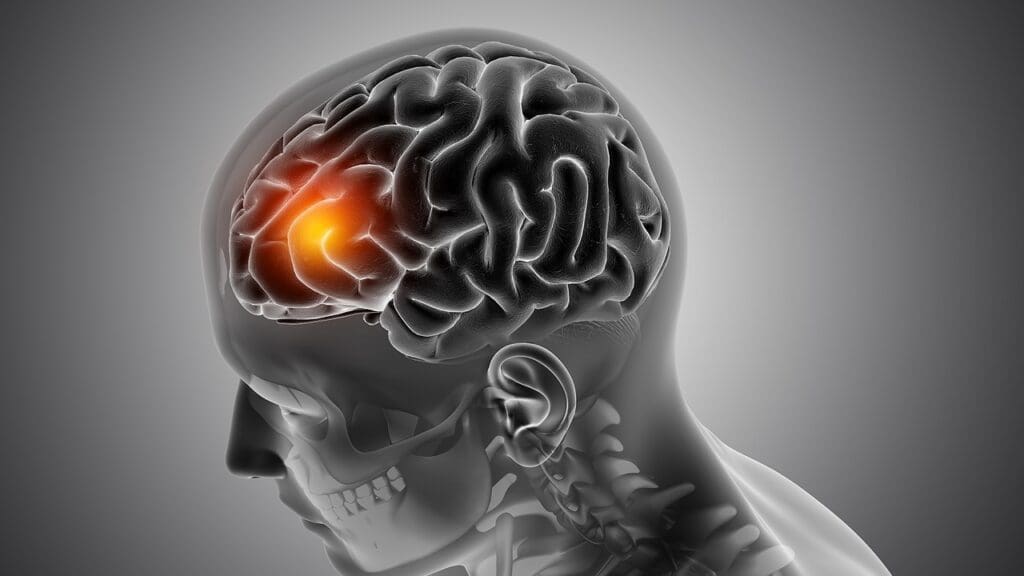
Getting a brain tumor diagnosis is scary. Spotting symptoms early is key for quick medical help. At Liv Hospital, we focus on accurate diagnosis and keeping patients safe.
We’ll look at nine main symptoms linked to brain tumors. We’ll focus on dizziness, vertigo, and odd weight changes. Our aim is to give you detailed, easy-to-understand info.
We mix medical know-how with care to help you through tough times. Spotting early signs is the first step to good treatment and care.
Key Takeaways
- Spotting brain tumor symptoms early is vital.
- Dizziness and vertigo might be signs of a brain tumor.
- Odd weight changes could also point to a problem.
- Liv Hospital offers top-notch care for complex cases.
- We put patient safety and accurate diagnosis first.
Understanding Brain Tumors and Their Symptomatic Presentation

Brain tumors can show different symptoms based on their type and where they are in the brain. These symptoms can affect a person’s quality of life. They can be caused by both benign and malignant tumors.
Types of Brain Tumors and Their General Effects
Brain tumors are divided into primary and metastatic types. Primary tumors start in the brain, while metastatic ones spread from other parts. The symptoms depend a lot on the type of tumor.
Meningiomas, which are usually not cancerous, can press on brain areas and cause symptoms. On the other hand, glioblastomas, which are cancerous, can grow fast and cause severe symptoms quickly.
| Tumor Type | Common Symptoms | Growth Rate |
|---|---|---|
| Meningioma | Headaches, seizures, vision changes | Slow |
| Glioblastoma | Severe headaches, confusion, memory loss | Rapid |
| Metastatic Tumor | Varies based on primary cancer site | Varies |
How Symptoms Develop and Progress
Symptoms of brain tumors come from the tumor’s effect on the brain tissue around it. This can be through compression, invasion, or changing brain function. The speed at which symptoms get worse depends on the tumor’s growth and where it is.
Tumors near the hypothalamic region can mess with hormones, leading to weight changes. Some research shows that brain tumors can make people gain weight by affecting appetite and metabolism centers in the brain.
The Importance of Recognizing Warning Signs
It’s key to spot the early signs of brain tumors for a better chance of treatment. Finding and treating tumors early can greatly improve outcomes.
Knowing how fast a tumor grows and its effects on the brain helps in choosing the right treatment. This knowledge is vital for both patients and doctors.
By knowing the symptoms and acting fast, patients can have a better shot at successful treatment and recovery.
Brain Tumour Dizziness and Vertigo: A Primary Warning Sign

Dizziness and vertigo are key warning signs of brain tumors. These symptoms can make daily life hard. We’ll look at the differences between dizziness and vertigo, how tumors affect balance, and why symptoms can come and go.
Distinguishing Between Dizziness and Vertigo
Dizziness means feeling faint, lightheaded, or disoriented. Vertigo is a specific feeling of movement or spinning. It’s important to know the difference for accurate diagnosis.
Vertigo often comes from inner ear or brain problems. Tumors in the cerebellum or brainstem can cause vertigo. This is because they disrupt balance and equilibrium.
- Feeling like you or your surroundings are spinning
- Loss of balance or equilibrium
- Nausea or vomiting associated with vertigo
How Brain Tumors Disrupt Balance Centers
Brain tumors can affect balance centers in different ways. Tumors in the cerebellum can mess with movement and balance. The cerebellum helps fine-tune motor movements, so any disruption can cause balance problems.
The brainstem also controls balance and equilibrium. Tumors here can cause vertigo, dizziness, and other balance issues.
When Dizziness Comes and Goes: Intermittent Symptoms
Intermittent dizziness or vertigo is hard to diagnose. Tracking when symptoms occur and how long they last is key for healthcare providers.
- Identify triggers: Certain activities or positions may trigger or worsen dizziness and vertigo.
- Duration of symptoms: Note how long each episode lasts.
- Associated symptoms: Other symptoms like headaches, nausea, or visual disturbances can provide clues.
Understanding dizziness and vertigo patterns helps healthcare providers diagnose and treat the cause. This could be a brain tumor or another condition.
Unusual Weight Changes: Gain and Loss Explained
Weight changes, whether gain or loss, can surprise you if you have a brain tumor. This is because tumors can mess with your body’s hunger and fullness signals. This can cause big changes in weight for patients.
Can a Brain Tumor Cause Weight Gain?
Yes, a brain tumor can make you gain weight. Tumors near the hunger center in the brain can make you eat more. Also, some treatments for brain tumors can add to the weight gain.
The part of the brain that controls hunger is called the hypothalamus. If a tumor is there, it can mess with hunger signals. This can make you want to eat more.
Mechanisms Behind Tumor-Related Weight Loss
Weight loss from brain tumors happens in a few ways. Tumors can make you less hungry or change how your body uses food. Symptoms like nausea and vomiting also play a part.
Some tumors can make substances that mess with how your body uses food. Knowing how this works is key to helping patients with weight issues.
Metabolic and Appetite Disruptions
Brain tumors can really mess with how your body works and how hungry you feel. Where and how big the tumor is matters a lot. For example, tumors near the brainstem can affect basic body functions. Tumors in other spots can mess with hunger hormones.
This can cause all sorts of problems, like eating too much or not wanting to eat at all. To deal with these issues, doctors need to understand how the tumor affects your body.
High Blood Pressure as a Brain Tumor Symptom
Brain tumors can cause high blood pressure by affecting brain centers that control it. High blood pressure is a serious health issue that can be linked to brain tumors. We will look into how brain tumors and high blood pressure are connected, including the mechanisms and when to think of a brain cause for high blood pressure.
The Connection Between Brain Tumors and Hypertension
The link between brain tumors and high blood pressure is complex. Some brain tumors can harm areas of the brain that manage blood pressure, causing hypertension. Tumors that affect the hypothalamus or brainstem are very important because these areas are key in controlling blood pressure.
Studies have found that tumors in these areas can mess with the body’s blood pressure control. For example, a tumor pressing on the brainstem can stop the body from managing blood pressure right.
Hormonal Centers and Blood Pressure Regulation
The hypothalamus is key for hormone regulation, and tumors there can affect many functions, including blood pressure. The hypothalamus controls the autonomic nervous system, which handles things like heart rate and blood vessel constriction, both important for blood pressure.
If a brain tumor hits the hypothalamus, it can upset these functions, possibly causing high blood pressure. Knowing this is important for diagnosing and treating patients with brain tumors and high blood pressure.
When to Suspect a Neurological Cause for Hypertension
High blood pressure is common and often tied to diet or genetics, but some signs might point to a neurological cause. If you have high blood pressure with other neurological symptoms like headaches, dizziness, or vision changes, it could mean a brain tumor.
Getting a full medical check-up is a good idea if you suddenly or severely have high blood pressure, and you have other risk factors or symptoms that suggest a brain tumor.
| Symptom | Possible Indication |
|---|---|
| Hypertension with neurological symptoms | Potential brain tumor |
| Sudden severe headaches | Possible tumor-related headache |
| Dizziness and balance issues | Possible tumor affecting balance centers |
Knowing the signs and understanding the link between brain tumors and high blood pressure can lead to earlier diagnosis and better treatment. If you’re worried about symptoms, we suggest you get medical help.
Vision Disturbances and Occipital Lobe Symptoms
The occipital lobe handles visual information. Tumors here can cause vision problems. These issues can really affect a person’s life, so it’s key to know the signs and get medical help.
Tumor on Occipital Lobe: Visual Field Defects
A tumor in the occipital lobe can lead to visual field defects. These are missing or impaired areas of vision. Symptoms include blind spots, loss of side vision, or trouble seeing on one side.
These issues can make everyday tasks hard, like driving or reading. Some people might get used to the loss, but it’s different for everyone.
Eye Twitching and Other Visual Abnormalities
Tumors in the occipital lobe can also cause eye twitching, blurred vision, or seeing flashes. Eye twitching is a sign of nerve irritation or compression.
These symptoms can come and go, depending on the tumor and brain tissue. Seeing a doctor is important for a proper check-up.
Differentiating from Common Vision Problems
Vision troubles from occipital lobe tumors can seem like regular eye issues. But, tumor-related problems usually get worse over time. They might also come with headaches or seizures.
It’s important to tell the difference between these and common eye problems. A doctor’s evaluation, including scans, is needed. Early diagnosis helps in treating the tumor.
Sensory Changes and Coordination Issues from Parietal Lobe Tumors
The parietal lobe is key in processing sensory info. Tumors here can cause many symptoms. We’ll look at how these tumors affect how we feel and move.
Key Symptoms of Parietal Lobe Tumors
Parietal lobe tumors can lead to numbness, tingling, and trouble with balance. They also make it hard to know where things are in space. This is because the parietal lobe helps us understand touch and space.
When a tumor hits this area, it messes with these functions. This leads to the symptoms mentioned.
Spatial Awareness and Body Sensation Disruptions
Tumors in the parietal lobe can mess with our sense of space and body feeling. This makes it hard to move around or do simple tasks like getting dressed.
Some people might have apraxia. This means they can’t do tasks, even if they want to and can physically. It’s because their brain can’t plan and coordinate movements well.
Coordination Problems and Their Progression
Coordination issues from parietal lobe tumors can get worse. They can make everyday activities harder. As the tumor grows, walking, balance, and fine motor tasks become more challenging.
If you’re having these symptoms, see a doctor. Early diagnosis is key to managing parietal lobe tumors.
| Symptom | Description | Impact on Daily Life |
|---|---|---|
| Numbness/Tingling | Sensory disturbances in parts of the body | Difficulty with fine motor tasks |
| Spatial Disorientation | Difficulty navigating spaces | Challenges with daily activities like dressing |
| Coordination Issues | Problems with balance and movement | Increased risk of falls and injuries |
Memory, Speech, and Emotional Changes: Temporal Lobe Symptoms
The temporal lobe is key for memory, language, and emotions. Tumors here can cause big changes. These changes affect thinking, feelings, and how we talk.
Can a Brain Tumor Cause Memory Loss?
Yes, a brain tumor in the temporal lobe can lead to memory loss. This area is vital for memory. Tumors can mess with memory, making it hard to remember new things or old ones.
Memory loss can show up in many ways. It might be hard to remember recent events or learn new stuff. The extent of memory loss depends on the tumor’s size and location.
Speech and Language Disruptions
Temporal lobe tumors can also mess with speech and language. This area helps us understand and speak language. Damage here can cause aphasia, making it hard to speak, read, or write.
These issues can make it tough to talk and communicate. Early treatment is key to keep language skills sharp.
Emotional and Behavioral Changes
Emotional and behavioral changes are common with temporal lobe tumors. The temporal lobe is connected to emotions and behavior. Tumors can upset emotional balance, leading to mood swings and odd behaviors.
Patients might get irritable, anxious, or depressed. They might act out of character or struggle to control their feelings. This can be hard for patients and their families, showing the need for full support.
Headaches and Pain Patterns Specific to Brain Tumors
It’s important to know the patterns of headaches linked to brain tumors for early detection. Headaches can be a sign of a brain tumor, but not all are. We’ll look at the signs of tumor headaches and when to see a doctor.
Characteristic Features of Tumor-Related Headaches
Tumor headaches have unique signs that set them apart from other headaches. These include:
- Persistence and Progression: Headaches that keep coming back or get worse over time.
- Severity: Severe headaches that get worse with activities like coughing or straining.
- Association with Other Symptoms: Headaches with other symptoms like nausea, vomiting, or vision problems.
Spotting these signs early can help find brain tumor symptoms sooner.
Morning Headaches and Positional Pain
Morning headaches are a big deal when it comes to brain tumors. They can be due to the tumor’s effect on brain pressure, which might rise while sleeping. We see that:
- Morning Headaches: Often worse in the morning and may feel better as the day goes on.
- Positional Pain: Headaches that change with how you sit or stand.
These signs could mean there’s a brain tumor and need a doctor’s check-up.
When Headaches Warrant Immediate Medical Attention
Not every headache is a worry, but some signs need quick doctor visits. These include:
- Sudden Onset: Severe headaches that start suddenly.
- Change in Pattern: A change in how often, how bad, or how they feel.
- Associated Symptoms: Headaches with confusion, weakness, or trouble speaking.
If you or someone you know has these symptoms, getting medical help right away is key.
We aim to offer full care and support for those with symptoms that might be from brain tumors. Finding and treating early can make a big difference.
Cognitive Changes and Neurological Deterioration
A brain tumor can cause small but important changes in how we think. These changes can affect our daily life. It’s important to know how these changes happen and what they mean.
Subtle Cognitive Shifts in Early Stages
In the beginning, changes might be small and easy to miss. Subtle cognitive shifts can make it hard to focus, forget things, or act differently. These signs might not point to a brain tumor right away.
It’s hard to spot these early signs because they can look like other problems. But, if symptoms keep getting worse, it’s time to see a doctor.
Progressive Neurological Decline
As a brain tumor grows, it can make things worse. Progressive neurological decline means bigger problems with thinking and moving. You might get confused, have trouble speaking, or forget a lot.
How fast this happens depends on the tumor and where it is. Knowing how it affects you is key to managing it.
How Fast Does a Brain Tumour Grow and Affect Cognition?
How fast a brain tumor grows and affects thinking can differ a lot. It depends on the tumor type, where it is, and your health.
Slow-growing tumors might let you adjust slowly. But fast-growing tumors can cause quick problems. Knowing about your tumor helps plan the best care.
We aim to help those with brain tumors get the support they need. We want to make sure they get the care and understanding they deserve during tough times.
Conclusion: Recognizing Symptoms and Seeking Timely Medical Care
It’s key to know the signs of brain tumors to get medical help fast. We’ve talked about symptoms like dizziness, vertigo, weight changes, and thinking problems. These could mean a brain tumor is present.
We want everyone to know these signs. If you or someone you know shows these symptoms, get medical help right away. Our team is here to support and care for those dealing with this tough condition.
By spotting these symptoms early and getting medical help quickly, people can get the right diagnosis and treatment. We’re all about top-notch healthcare. We make sure our patients get the best care possible.
Can a brain tumor cause dizziness?
Yes, a brain tumor can cause dizziness. This is more likely if it’s in areas like the cerebellum or brainstem.
Can a brain tumor cause weight gain?
Yes, brain tumors can lead to weight gain. They affect the brain’s metabolism and appetite centers.
Can a brain tumor cause high blood pressure?
Yes, certain brain tumors can cause high blood pressure. This is true for tumors near hormonal centers or blood pressure regulation areas.
What are the symptoms of a tumor on the occipital lobe?
Tumors on the occipital lobe can cause visual disturbances. This includes visual field defects and eye twitching.
What are the symptoms of a parietal lobe tumor?
Parietal lobe tumors can cause sensory changes. They also lead to coordination problems and disruptions in spatial awareness and body sensation.
Can a brain tumor cause memory loss?
Yes, tumors in the temporal lobe can cause significant memory changes. This includes memory loss.
Can a brain tumor cause eye twitching?
Yes, tumors in the occipital lobe or other areas can cause eye twitching. They also cause other visual abnormalities.
How fast does a brain tumor grow?
The growth rate of a brain tumor varies. It depends on its type and location. Some grow slowly, while others grow faster.
Is dizziness a sign of a brain tumor?
Dizziness can be a sign of a brain tumor. It’s more likely if it’s persistent or with other symptoms like vertigo or balance problems.
Can a brain tumor cause dizziness that comes and goes?
Yes, brain tumors can cause intermittent dizziness. This dizziness may come and go based on the tumor’s location and its effect on surrounding brain tissue.
References:
- https://www.thebraintumourcharity.org/brain-tumour-signs-symptoms/adult-brain-tumour-symptoms/nausea-dizziness-brain-tumour
- https://blog.dana-farber.org/insight/2019/10/what-are-common-brain-tumor-symptoms https://www.cancerresearchuk.org/about-cancer/brain-tumours/symptoms
- https://braintumor.org/brain-tumors/diagnosis-treatment/signs-symptoms https://www.ncbi.nlm.nih.gov/pmc/articles/PMC9541422




































